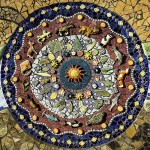Introduction
Reiki is based on a simple spiritual principle: we’re all guided by the same universal life force energy that governs our physical, mental, emotional, and spiritual well-being. When the energy flows freely within our system, we can access an unlimited source of power and wisdom. But when the energy runs into blockages caused by unresolved traumas, negative thinking, and behavior patterns, our well-being gets affected and physical illness may appear to bring those blockages to our attention.
Everyone agrees (scientific community included!) that even an hour of Reiki healing energy brings a positive shift of some sort!
Now, what that Reiki healing energy session looks like, depends. We all know there are different styles of Reiki, and different methods and techniques for each style, but did you also know that there are different Reiki energy types? This refers to the focus and intention of Reiki practitioners in their healing practice.
5 Different Reiki Energy Types
There are 5 main types of Reiki energy, each with its own unique approach to healing:
1. Physical Reiki Energy Type
A Physical Reiki Energy Type practitioner focuses primarily on working with the physical body during a Reiki healing session. They use Reiki energy to help the client deeply relax since relaxation can reduce muscle tension and pain, release stress, speed wound healing, and improve physical function whether we’re talking about a small injury, cancer, or recovery from a difficult surgery.
2. Emotional Reiki Energy Type
An Emotional Reiki Energy Type practitioner focuses on working with the emotions during a Reiki healing session, helping their clients to release negative emotions, such as stress, anger, anxiety, fear, grief, or sadness, that are affecting their well-being. Bringing the source of a problem to the surface is their strong suit to liberate the emotional issues that caused it in the first place.
3. Mental Reiki Energy Type
A Mental Reiki Energy Type practitioner promotes mental health during a Reiki healing session and focuses on helping their clients have clearer thoughts, a calmer mind, release pent-up stress, and cultivate a more positive mindset, believing that most blockages within the body are caused by the “monkey mind” and its inability to process the emotions we’re facing daily.
4. Spiritual Reiki Energy Type
A Spiritual Reiki Energy Type practitioner focuses on promoting spiritual growth and connection with the higher self, using Reiki energy to help their clients access their inner wisdom, discover their life purpose, and connect with their spiritual source. Intuitive and spiritually attuned, they have a deep connection to the universe and their own inner self. Usually, their life experiences transcend the physical world and can be described as mystical or otherworldly.
5. Holistic Reiki Energy Type
A Holistic Reiki Energy Type practitioner focuses on treating the whole person, rather than just their physical symptoms! They understand that physical symptoms are often a manifestation of underlying emotional, mental, and spiritual imbalances, and work to address all of these areas during the Reiki session. This holistic approach to healing allows them to bring healing and balance to all levels of the client’s being, resulting in improved physical health, emotional well-being, mental clarity, and spiritual growth.

Final Consideration
The Reiki energy type is an important aspect of a practitioner’s practice, determining their focus and approach to healing. But whether a practitioner is focused on physical healing, emotional healing, mental healing, spiritual growth, or a combination of these, the ultimate goal of Reiki is to promote the overall well-being of the recipient and the practitioner will hold this clear intention for healing and channel positive energy for the highest good of all those involved.
When seeking out a Reiki practitioner, it is important to remember that you will be guided towards the practitioner who resonates with you the most. This means that even if your main concern is spiritual development, there may be other, more pressing issues that need to be addressed first. A good practitioner will help you to identify these areas and guide you in your healing journey, providing support and guidance every step of the way. Whether you are looking to overcome a physical ailment, release emotional baggage, change your inner narrative, or simply connect with your higher self, Reiki can be a powerful tool for promoting personal growth and well-being.
FREE Reiki Energy Type Quiz
If you want to discover more, take this free Reiki energy type quiz and unveil the way you conduct your own healing sessions!
The answer you’ll receive is based on your present approach towards healing and might change over time depending on your Reiki level, healing experiences and personal development.





Leave a Reply